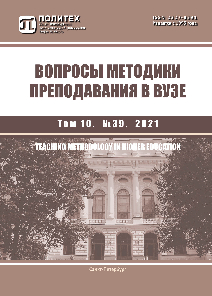Organizing students' self-study in translation and interpreting: experience of Minsk State Linguistic University
The article discusses the experience of the self-study process organization at the department of modern translation techniques at Minsk State Linguistic University. constant self-development and self-learning are the major components of translator and interpreter’s competence. Due to rapid digitalization of education new ways of organizing collaborative work, mastering soft skills and developing metacognition are being studied. The less students depend on a teacher the more autonomous and engaged in learning they become and this is the reason why the necessity to shift the learning process from being teacher-centered towards interaction with peers, experts and clients is explained. The term self-regulation, phases of self-regulation and their relation to the level of self-study efficiency are reviewed. The article provides practical examples of the self-study tasks aimed at developing translation and interpreting skills on different levels. The tasks presuppose the use of online resources, particularly Google cloud systems. The functions of each resource are described in order to show how they can contribute to making the learning process more related to professional life. The article suggests using check lists as an effective tool of self-regulation while studying translation and interpreting. Techniques listed have been successfully implemented in the study process at the Faculty of Intercultural Communications since 2018.



